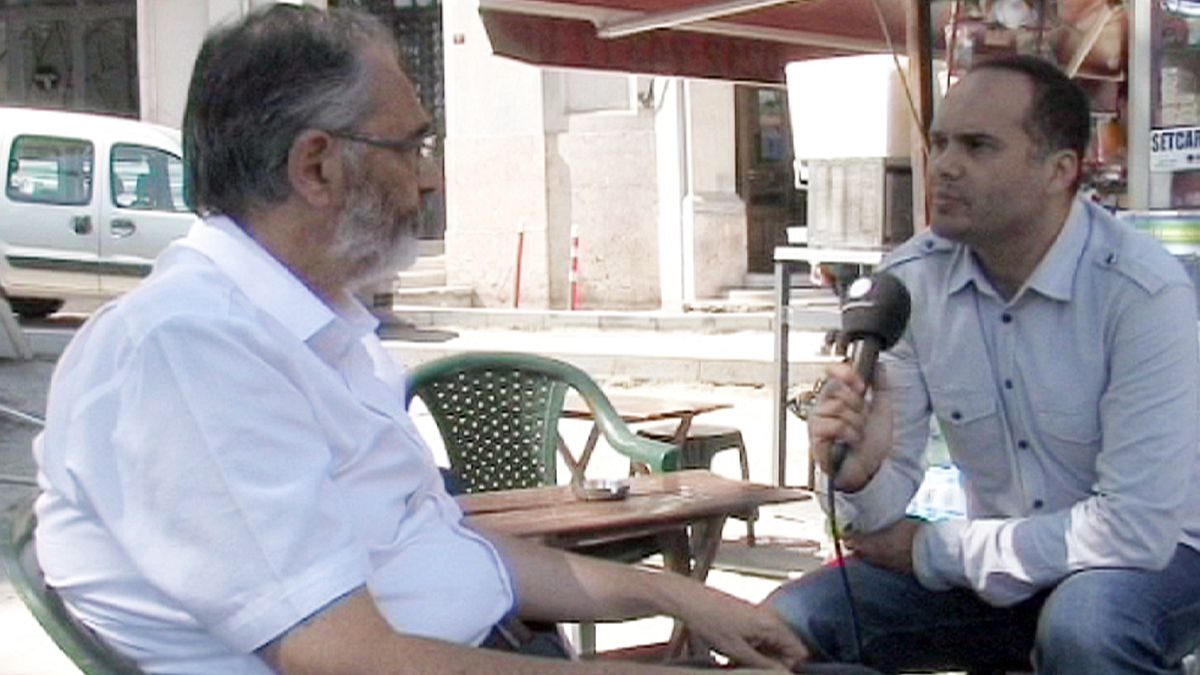Turkish riot police have been clearing Istanbul’s Taksim Square of its last protestors.
The unrest began after a police crackdown on an environmental protest over Gezi Park’s redevelopment two weeks ago. Since then protests have grown across the city with three people killed and more than 5,000 injured.
Prime Minister Erdogan was once championed for his democratic reforms. Now protestors accuse him of becoming increasingly authoritarian and trying to impose conservative Islamic values.
Others are angry at his support for the opposition in Syria and the peace process with Kurdish militants.
But many Turks still support the government despite recent events. Conservatives say they have been pushed around by the secular state for decades and Erdogan’s AK Party is seen as a saviour.
Euronews’ Istanbul correspondent Bora Bayraktar spoke to prominent journalist and commentator of Turkish affairs, Etyen Mahçupyan, about recent events.
Bora Bayraktar: “What is your analysis of the events at Taksim Square over the last 15 days?”
Etyen Mahçupyan: “It is a multi-layer issue. There are many different groups involved. It started with a secular part of society and as a movement of young people. There is also another group involved: The Taksim Platform which is made up of people from the Taksim neighbourhood. It was a movement to protect Taksim and the Gezi Park.”
“Then other groups joined, representing a wide spectrum of Turkish politics. The problem here is it became hard to differentiate between the groups. Because the major player in this movement is a spontaneous group with no leader. And they are not willing to use the traditional tools and methods of politics.”
“This meant they were not part of any particular organisation. So organised groups were able to dominate the situation. Simply it is the culture of disassociation. The groups stand side by side and they don’t touch or push each other and they don’t establish any kind of relationship. This created a mosaic and caused two things: Firstly, it partially became politicized and secondly it started to degenerate.”
Bora Bayraktar: “How do you evaluate the government’s perception of events? The government appears to see this as an attempt at a military coup.”
Etyen Mahçupyan: “The government is trying to differentiate between these groups. But I should point out that the government has taken days to come to this point. At the beginning they didn’t realise what was going on. For the first three days they just didn’t get it.”
“As a deeper analysis, we should underline that there is a great gap between the Islamists and seculars in terms of decoding each others’ cultural codes. For this reason seculars cannot understand the mindset of Islamists and Islamists do not understand the secular mind.”
“It means the government could not understand the reasons behind the youth uprising, because their young people are not like that. There are 1990 generation youngsters among the Islamists and they do not act like this.”
“The AK Party government only saw the people behind them. They witnessed that the people behind them were systematically manipulating these young men and women. Calling this an attempt at a military coup seems an exaggeration, but I do think there are people who want to produce the dynamics which would lead to a coup. We can see the signs of this particularly in the financial markets, where new organizational links are being established.”


